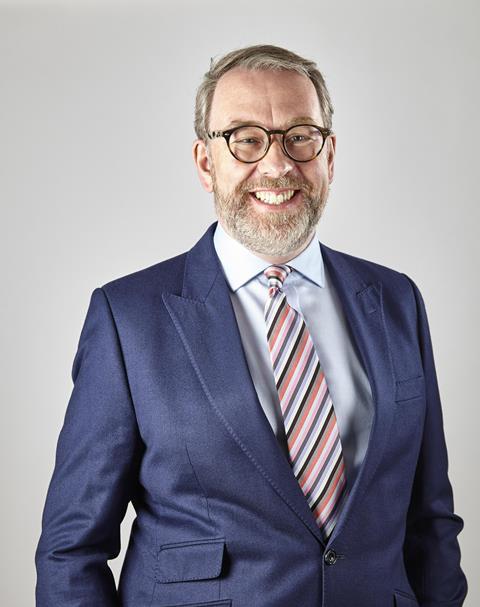Partner in the London office
I have known a few of the partners at Labaton Keller Sucharow for a number of years. I was delighted in early 2024 when they approached me to ask if I would be interested in joining the partnership and establishing the firm’s first international office. We opened Labaton London – in the heart of the City – in June 2024.

Running the London office while the firm’s other offices are based in the US presents both unique challenges and advantages. Tools such as Microsoft Teams significantly enable seamless communication between my colleagues. I am in constant touch with colleagues in New York, Delaware and Washington DC.
The global nature of our client base means that collaboration and travel are key components of my role. Several colleagues are regularly in the UK and Europe. I always appreciate the opportunity to take them along with me to meet our UK clients – not only because of their incredible knowledge and experience but also their valuable insights, especially when dealing with complex issues that span both sides of the Atlantic. Recently, for example, there has been significant client interest in the implications of the US presidential election on the global economy. Bringing in colleagues who are based in the US adds further depth to those conversations.
I started my career representing working people, usually referred to me by a trade union. Worker rights has been a key focus for me for almost 30 years. I have enjoyed winning improved terms and conditions for thousands of workers across different sectors of the economy.
As my career has progressed, I have witnessed increasingly bad corporate behaviour. The ability to seek redress for clients, while at the same time securing corporate governance reform, has been very rewarding. I have acted in large ‘disaster’ cases where thousands of people have been impacted due to failures in the ‘G’ of ESG. As regulation and enforcement have diminished, I have found that it is now often left to large institutional investors to take action and help hold corporates to account.
'I accompanied Jimmy Carter to the Middle East. As a relatively young lawyer, it was fascinating to witness the experience and skill of president Carter in navigating seemingly irreconcilable differences of opinion'
The ‘E’ of ESG generally receives the most publicity. I find that many institutional investors are motivated to take action when corporates fail to live up to the ‘green’ credentials that they proudly display. We are currently investigating a case against a global brand which allegedly flaunted rules regarding single-use plastics. In cases like this when a business allegedly chose to prioritise additional profit over their responsibility to the environment as a good corporate citizen, it is not difficult to motivate responsible investors to take action.
For a number of years, I was one of a small number of people elected to sit on the Joint Policy Committee. While Tony Blair and Gordon Brown were prime ministers, this committee was responsible for overseeing policy development. It was a great privilege to work at close quarters with them and senior members of government. I am proud to have played a small part in shaping the manifestos for three general elections.
Because of my political involvement here in the UK, I was asked to accompany the late US president Jimmy Carter to the Middle East to oversee the conduct of a presidential election. There is nothing quite like witnessing the operation that supports a US president to understand the value of ‘soft power’ in situations that might best be described as diplomatically challenging. As a relatively young lawyer, it was fascinating to witness the experience and skill of Carter in navigating seemingly irreconcilable differences of opinion.
It was overwhelming to visit Jerusalem, a place that is so central to Judaism, Christianity and Islam. There were accompanied visits to the Western Wall, the Church of the Holy Sepulchre, and the Al-Aqsa Mosque. I was also in the northern region of the West Bank, to monitor the operation of makeshift polling stations. I became separated from my group. I was stopped by heavily armed men demanding to know why I was there. I confess to being very scared. Thankfully help arrived quickly and I was reunited with our group.






























